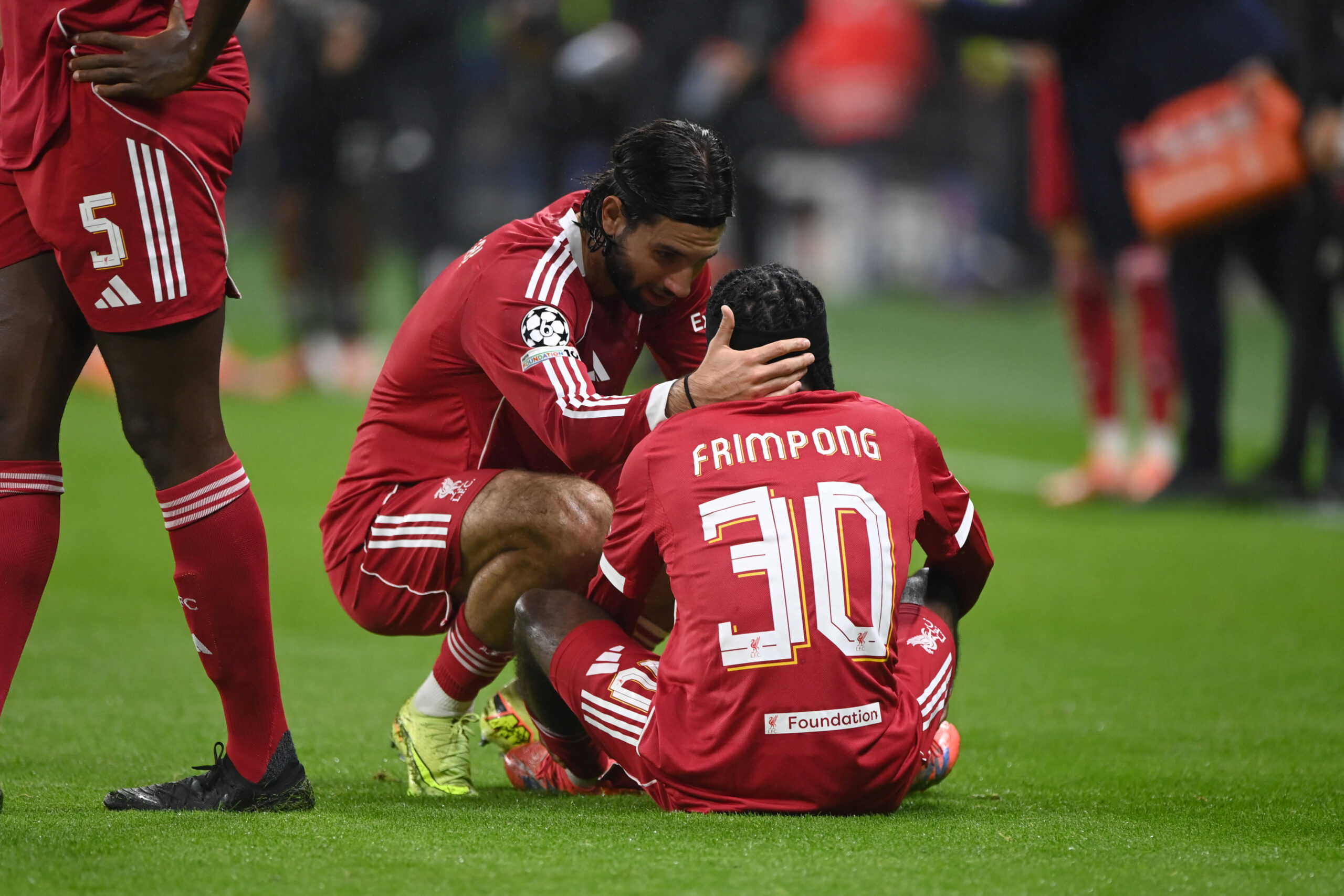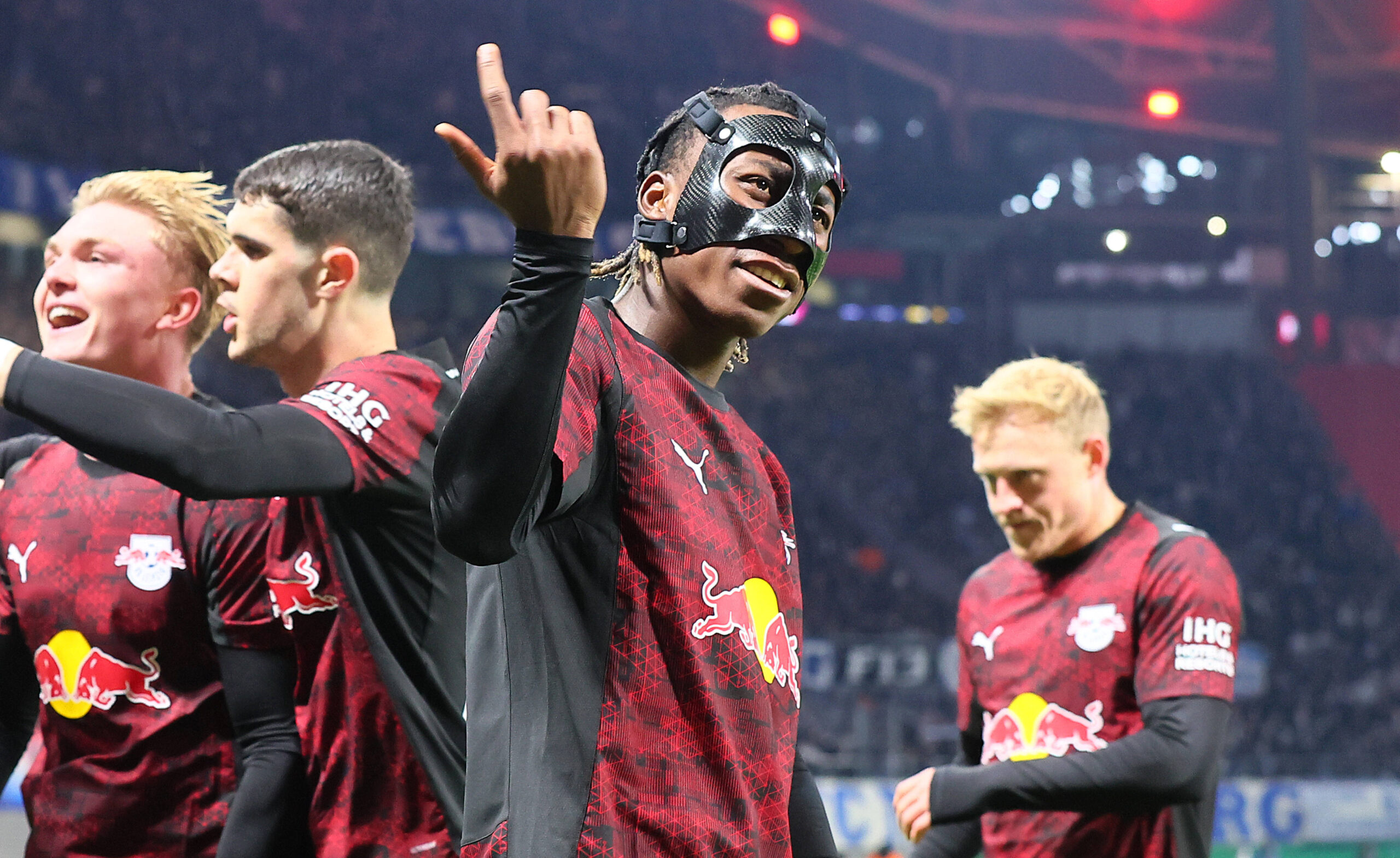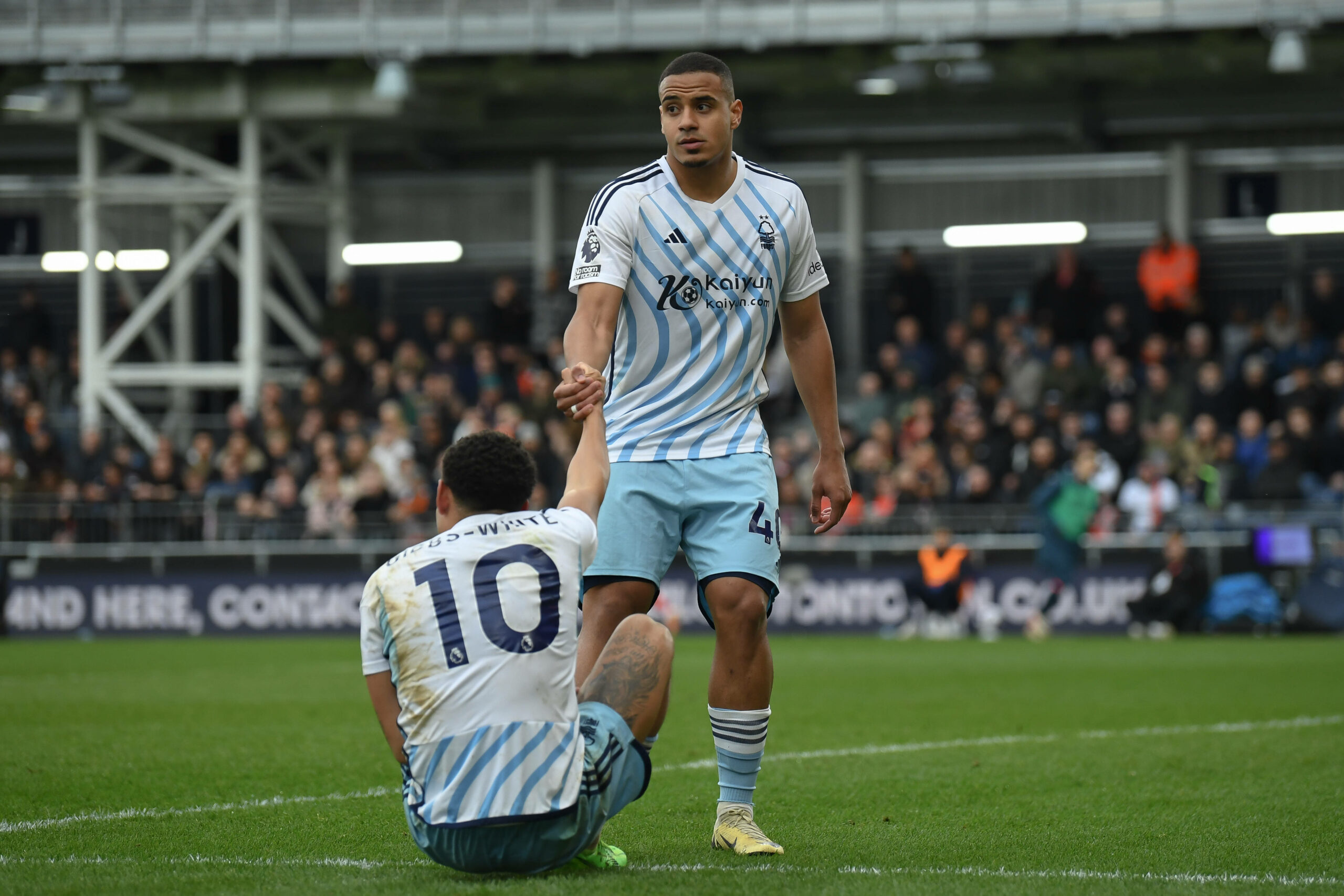LFC.SUpporters
You'll Never Walk Alone
Anfie ldindex com
Liverpool star set to miss Nottingham Forest clash after latest injury update

Liverpool’s preparations for the trip to Nottingham Forest continue to revolve around fitness concerns, with Gregg Evans of The Athletic reporting that “Liverpool are likely to be without Jeremie Frimpong for another week as he completes the final stages of his recovery from a groin injury.” The update reinforces a season shaped by disruption, particularly in defensive areas where stability has proved elusive.
The club’s cautious approach feels logical given recent setbacks. As highlighted in the original report, “Liverpool are carefully managing Frimpong’s return after a stop-start season where he suffered two hamstring injuries before the latest setback.” Within the context of a demanding campaign, Arne Slot’s medical and coaching staff appear determined to prioritise long term availability rather than rush the Dutch full back back into action.
 Photo: IMAGO
Makeshift right back solutions under Arne Slot
Photo: IMAGO
Makeshift right back solutions under Arne Slot
One of the most intriguing aspects of this situation lies in how Liverpool have adapted tactically. Evans notes that “Head coach Arne Slot has played a number of midfielders at right-back this season and will consider his options in the days ahead.” Curtis Jones and Dominik Szoboszlai stepping into unfamiliar defensive roles highlights both versatility and necessity.
There is a sense that these adjustments have been reactive rather than planned. Joe Gomez’s return offers a more natural defensive presence, although Liverpool are also managing his minutes carefully after an equally frustrating campaign. The balance between protecting players and remaining competitive remains delicate, particularly as fixtures tighten.
Observers inside the game often emphasise that squad depth defines title challenges. Liverpool’s current approach could shape how they navigate the next few weeks.
Defensive instability since Alexander Arnold departureAnother layer to this narrative is the structural shift that followed a major summer exit. As Evans wrote, “The right-back position has been a problem for the Premier League champions ever since Trent Alexander-Arnold left for Real Madrid last summer.” That sentence alone captures the broader context, Liverpool are still adapting to life without a player who once defined their attacking build up.
The decision not to pursue Lutsharel Geertruida late in the window also stands out. With Conor Bradley ruled out and Wataru Endo facing a lengthy spell on the sidelines, the recruitment strategy will inevitably come under scrutiny. Supporters may question whether enough was done to anticipate these scenarios.
Liverpool remain competitive, yet the reliance on improvised solutions reveals an ongoing transition. If Frimpong returns fully fit, it could offer much needed clarity to a position that has lacked continuity all season.
Our View – Anfield Index AnalysisFrom a Liverpool supporter’s perspective, this report is disappointing. The constant mention of careful management and makeshift solutions highlights a wider issue that has lingered since last summer. Fans expected stronger planning at right back after Trent Alexander Arnold’s departure, yet the squad still looks thin when injuries hit.
There is also a growing sense that Arne Slot is being forced into compromises. Seeing Curtis Jones or Dominik Szoboszlai covering defensively may show tactical flexibility, but it also exposes the lack of a settled option. Supporters want clarity, not constant reshuffling that disrupts rhythm and confidence.
Injuries are part of football, yet depth is meant to protect against exactly this scenario. Liverpool fans often value proactive planning, and this season has felt reactive.
Ultimately, the update about Frimpong being out for another week may seem minor on paper, but emotionally it adds to the feeling that momentum keeps stalling. A disappointed fan might argue that the club needs stronger solutions, clearer direction in defence, and fewer weeks defined by who is unavailable rather than who is ready to lead the team forward.

Journalist: Liverpool receive boost in the race to sign £86m forward

Liverpool’s recruitment plans are already under scrutiny as attention turns towards the summer window, and fresh reporting from CF Bayern Insider suggests the Reds may have an advantage in pursuit of RB Leipzig talent Yan Diomande. With Arne Slot pushing for improvement after an inconsistent campaign, interest in emerging attacking options feels both logical and necessary.
Transfer context around AnfieldResults have fluctuated throughout the season, with unexpected defeats and recurring injury issues disrupting rhythm. While Champions League ambitions remain alive, there is a sense that Liverpool’s long term planning needs sharper execution. Injuries to key full backs exposed a lack of depth, and the delay in winter recruitment raised eyebrows among supporters and analysts alike.
Forward areas have also drawn attention. Despite heavy investment in previous windows, Slot’s attack has not consistently delivered the cutting edge expected at elite level. That reality explains why multiple attackers continue to be linked with a move to Merseyside, and Diomande’s name has moved firmly into the spotlight.
Yan Diomande profile and valuationAt 19, Diomande represents a modern attacking prospect with significant upside. RB Leipzig reportedly value him at around £86 million, a figure that reflects both his potential and current output. Christian Falk provided insight into the situation, stating:
“It is TRUE: Yan Diomande is going to cost a lot of money to sign this summer. The €100m [£87.1m] asking price was established by RB Leipzig chief Oliver Mintzlaff,” he said to the CF Bayern Insider website.
“We saw him playing against Bayern Munich in the DFB Pokal. He’s good, he’s really good.
“However, he’s still got some developmental work to do, and so €100m will be too much for Bayern this summer.
“That said, it’s a price that Premier League clubs can of course afford to pay.”
 Photo: IMAGO
Squad evolution under Arne Slot
Photo: IMAGO
Squad evolution under Arne Slot
Slot’s tactical structure has demanded greater dynamism from wide attackers, yet questions remain over current options. Mohamed Salah’s influence has dipped compared with previous seasons, while Cody Gakpo has struggled to secure consistency without genuine competition on the left. Federico Chiesa’s uncertain future adds another layer of intrigue, particularly with interest building from Serie A.
Diomande’s 15 goals contributions in 24 appearances suggest he possesses both creativity and direct threat. Even so, committing such a large fee to a teenager carries inherent risk. Liverpool’s recruitment team will need to weigh immediate impact against long term development, a balance that has defined many of their recent transfer decisions.
Strategic outlook for summer windowThe rumour cycle surrounding Liverpool’s attack is unlikely to slow until a signing is confirmed. From a strategic perspective, the club’s advantage over Bayern Munich could be significant, especially if Leipzig remain firm on valuation. For Liverpool, the pursuit of a young forward labelled “outstanding” aligns with a model that prioritises potential growth alongside elite performance metrics.
Whether Diomande ultimately becomes the next major arrival remains uncertain, yet the conversation highlights a broader theme. Liverpool appear to be searching for renewed attacking energy, someone capable of reshaping the frontline as the squad transitions into a new era under Slot.
Our View – Anfield Index AnalysisFrom a Liverpool supporter’s perspective, this report feels genuinely exciting. The idea that the club might have an edge over Bayern Munich in any transfer race immediately grabs attention, especially when the player involved is already being talked about as a future star. Fans have watched the attack struggle to find rhythm this season, so hearing that recruitment staff are exploring bold options sparks real optimism.
Diomande’s numbers alone hint at serious potential, and supporters will love the thought of a fearless young forward arriving with hunger to prove himself. Arne Slot’s system thrives on intensity and movement, and many Reds will believe that a signing like this could reignite the frontline. There is also a sense that Liverpool need fresh competition for places, pushing established names to rediscover their best level.
Yes, the price tag sounds huge, and supporters understand the risk attached to spending close to £86 million on a teenager. Still, Liverpool fans have seen the club succeed when backing talented youth at the right moment. If the recruitment team truly believe Diomande fits the long term vision, plenty inside Anfield would welcome the gamble with open arms.

Report: Liverpool facing major battle to sign £50m-rated defender

Liverpool’s recruitment plans are already generating debate, with fresh reports suggesting a high profile defensive pursuit could define the next phase under Arne Slot. Credit must go to TeamTalk for the original report, which highlights Nottingham Forest centre back Murillo as a key name being monitored ahead of the summer window.
The Reds remain in a curious position. Cup competitions still offer promise, yet league form has left supporters questioning where improvements must come from. Defensive stability sits at the centre of that discussion, and it is no surprise that transfer links are intensifying.
Defensive Issues Driving Transfer FocusLiverpool’s drop to sixth in the Premier League, sitting 15 points behind Arsenal, has sharpened scrutiny on the back line. Performances have lacked the authority seen last season, with errors and inconsistency creeping into matches at crucial moments.
From a recruitment perspective, the need feels clear. Virgil van Dijk continues to provide leadership, yet the supporting cast has faced uncertainty. Ibrahima Konate’s long term future remains unclear, and incoming youngster Jeremy Jacquet may require patience before adapting fully to English football.
These factors help explain why TeamTalk’s report points towards a more established Premier League defender becoming a priority.
Murillo Emerges as Leading CandidateAccording to TeamTalk, the Brazilian is ‘preparing to leave’ Forest, with his representatives ‘actively assessing’ opportunities ahead of the next transfer window. Liverpool are described as one of the clubs most advanced in their preparation, having completed more ‘ground work’ than many of their rivals.
 Photo: IMAGO
Photo: IMAGO
Murillo is reportedly ‘firmly’ on the Reds’ shortlist, a sign that internal discussions have moved beyond casual scouting. At 23 years old, he combines youth with valuable top flight experience, an appealing mix for a team seeking both immediate impact and long term growth.
From a tactical angle, his mobility and composure on the ball would suit Slot’s approach. Liverpool’s defensive structure often asks centre backs to defend space aggressively, and Murillo’s athletic profile fits that brief.
Rival Interest Raises StakesChelsea’s involvement adds an extra layer of intrigue. Competition between Premier League rivals often accelerates negotiations, especially when a transfer fee around £50 million is being discussed.
Forest’s difficult season does not diminish Murillo’s reputation. Despite their league position, flashes of quality have reinforced his standing as one of the more promising defenders outside the traditional top six. Liverpool’s recruitment team, led by Richard Hughes, appear keen to act early to avoid a prolonged bidding war.
Summer Window Could Shape Slot’s ProjectLooking ahead, this potential deal symbolises more than a single signing. Liverpool’s recent seasons have shown that defensive depth can define success across multiple competitions. A calculated investment in a player entering his prime could offer stability during a transitional period.
Supporters will expect decisive action, especially after a campaign that has not matched previous standards. Whether Murillo becomes the headline arrival remains uncertain, yet the logic behind the pursuit feels aligned with the club’s broader strategy.
If the reports prove accurate, Liverpool’s summer rebuild may begin at centre back, and the outcome could influence their trajectory for years to come.
Our View – Anfield Index AnalysisThis report feels both encouraging and necessary. The defensive issues this season have been hard to ignore, and many fans believe Arne Slot needs a reliable partner alongside Virgil van Dijk to restore balance. Murillo’s age and Premier League exposure make him an appealing option, especially for a side trying to refresh its core without losing experience.
There is also a sense that recruitment under Richard Hughes is becoming more targeted. Supporters have watched inconsistency creep into the squad, and a proactive move for a player already comfortable in England could reduce the adaptation risk that sometimes comes with overseas signings.
Fans will naturally keep one eye on the competition from Chelsea, as transfer battles can quickly inflate fees and expectations. Still, many would argue that a £50 million investment in a defender who fits Slot’s style represents smart planning rather than a gamble.
Ultimately, this rumour taps into a wider hope around Anfield. Liverpool supporters want to see clear direction in the transfer market, and a move like this would signal intent to rebuild the defensive foundation for the seasons ahead.

